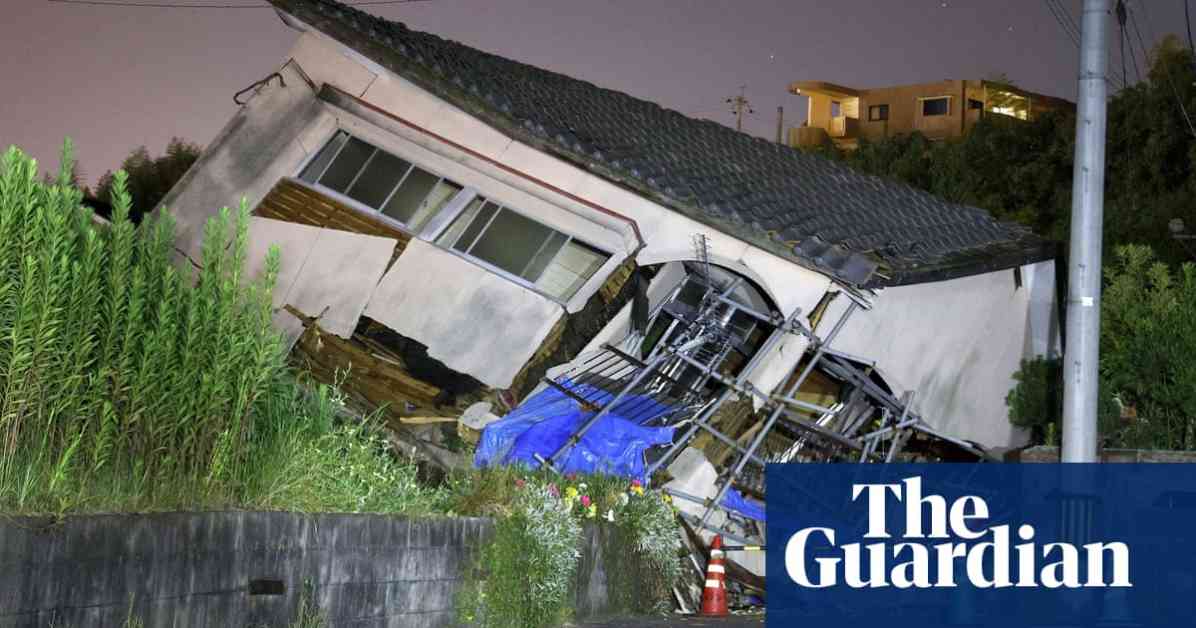Japan’s Prime Minister, Fumio Kishida, has decided to cancel his scheduled trip to central Asia due to a warning of a potential “megaquake” that could hit off the country’s Pacific coast. The warning came after a magnitude 7.1 earthquake struck the south-west region on Thursday.
Kishida, who is currently facing challenges to his leadership within his ruling party, made the announcement during a press conference on Friday. He was supposed to meet with leaders from Kazakhstan, Kyrgyzstan, Tajikistan, Turkmenistan, and Uzbekistan in Astana on Friday, followed by a meeting with the Mongolian president in Ulaanbaatar on Monday.
The Japan Meteorological Agency issued its first-ever warning about the increased risk of a major earthquake along the Pacific coast following the recent quake in Kyushu. While there have been no reports of casualties or significant damage, the warning has raised concerns about the possibility of a devastating earthquake in the near future.
The Nankai Trough, located between two tectonic plates in the Pacific Ocean, has historically been the site of powerful earthquakes. The undersea trough spans 800 kilometers from Shizuoka to Kyushu and has experienced destructive earthquakes with magnitudes of 8 or 9 every 100 to 200 years.
Experts believe there is a 70% to 80% chance of a megaquake hitting the Nankai Trough in the next 30 years, with potentially catastrophic consequences. In the event of a major earthquake, strong shaking and large tsunamis could be generated, putting hundreds of thousands of lives at risk.
While the possibility of a second earthquake following Thursday’s quake remains low, experts advise that the public should remain cautious and prepared for any potential disasters. The history of powerful earthquakes in the Nankai region serves as a reminder of the country’s vulnerability to seismic activities.
Despite the cancellation of the overseas trip, Prime Minister Kishida’s decision to prioritize safety and preparedness in the face of a possible megaquake reflects the government’s commitment to protecting its citizens and mitigating risks associated with natural disasters. As Japan continues to grapple with the threat of seismic events, maintaining vigilance and disaster readiness are essential for the safety and well-being of the population.




















